Your Ultimate Guide to Planning a Trip to Switzerland. Discovering the Hidden Gems of Switzerland, Switzerland, known for its spectacular scenery, is a mountainous country in the middle of Europe. These mountains significantly impact the country’s culture.
Fast Facts:
Location: Central Europe, bordering Germany, France, Italy, Austria, and Liechtenstein.
Capital: Bern.
The largest city is Zurich.
Population: About 8.7 million people, based on recent data. (2024)
Languages: Four official languages - German, French, Italian, and Romansh.
Government: A federal republic with a system of direct democracy.
Currency: Swiss Franc (CHF).

Famous for:
The Swiss Alps and the Jura Mountains.
High-quality watches and clocks.
Famous chocolate and cheese.
Financial services and banking sector.
Important factors:
Economy: Strong and developed, especially in banking, medicine, and manufacturing.
Neutrality: Known for not taking sides in disputes.
Tourism: likes skiing, hiking, and mountain destinations like Zermatt and St. Moritz.
Education: There are top universities like ETH Zurich and the University of Geneva.
Transport: Excellent public transport with plenty of trains and buses.
Major Geographics: Ultimate Guide to Switzerland
Switzerland has a mixture of mountains, lakes, and plains. The Alps in the south cover most of the country and have high peaks like the Matterhorn, which are great for skiing and hiking.
The Jura Mountains in the northwest have many forests and hills ideal for biking and skiing. In the middle is the Central Plateau, a flat area where most people live, including in cities like Zurich, Geneva, and Bern. Important lakes such as Lake Geneva and Lake Constance and rivers such as the Rhine and Rhone aid transportation and trade.
Glaciers in the Alps feed rivers and valleys. The weather is cold and snowy in the mountains but mild in the plains. This geography creates good transportation, lots of tourists, and clean energy from water, which influences the way of life in Switzerland.
People & Culture of Switzerland:
Switzerland is a country with a mixture of languages and cultures. People speak German, French, Italian, and Romansh.
Every region has its traditions and festivals. In the mountains, there are customs like yodelling and folk festivals. In cities like Basel, there are big carnivals with parades and music.
Swiss cuisine is famous for cheese and chocolate and includes dishes such as fondue and raclette. Swiss life is good, with good health care and schools.
They believe in being peaceful and letting people have their say in government decisions—the Swiss love outdoor activities like skiing and hiking.
They also enjoy art and music, enjoying many museums and festivals. Overall, the people and culture of Switzerland are unique because of the combination of their languages, traditions, and beautiful nature.

The beauty of Switzerland:
Switzerland is a beautiful country with many different things to see. There are huge mountains like the Matterhorn and beautiful lakes like Lake Geneva.
Towns and cities are also lovely, with old buildings and colorful streets. You can take an extraordinary train ride through mountains and valleys.
People like to do outdoor activities here, such as hiking and skiing, and discover Switzerland’s hidden gems. There are also festivals and events celebrating Swiss culture. Switzerland cares about its environment and tries to keep things clean and green. In the following blog, I will Explore Switzerland’s hidden gems.
Switzerland is a special place with unique natural features, lovely cities, and fun activities.
What is the best time to visit Switzerland, Ultimate Guide
The best time to visit Switzerland depends on your preferences and the activities you want to enjoy, as the country offers diverse experiences throughout the year. Here’s a breakdown of the seasons to help you decide:
Spring (March to May)
- Why visit:
- The weather starts to warm up, and the snow in lower altitudes begins to melt, giving way to lush green valleys and blooming flowers.
- Fewer crowds compared to summer and winter.
- Activities:
- Enjoying picturesque hikes in moderate weather.
- Exploring cities like Zurich, Lucerne, and Geneva.
- Visiting vineyards and experiencing the spring festivals.
- Weather: Mild, with daytime temperatures ranging from 8°C to 20°C (46°F to 68°F).
Summer (June to August)
- Why visit:
- Ideal for outdoor enthusiasts who love hiking, biking, and exploring alpine lakes.
- The Alps are lush and accessible, and popular attractions are fully open.
- Activities:
- Hiking in the Alps, especially in regions like Zermatt and Interlaken.
- Lake cruises on Lake Geneva or Lake Zurich.
- Attending festivals like Montreux Jazz Festival (July).
- Weather: Warm and sunny, with temperatures ranging from 18°C to 30°C (64°F to 86°F).
Autumn (September to November)
- Why visit:
- The fall foliage transforms the landscape into a colorful spectacle.
- It’s a quieter time with fewer tourists.
- Activities:
- Scenic train rides, like the Glacier Express and Bernina Express, offering stunning autumn views.
- Wine festivals and tasting tours, especially in the Lavaux region.
- Weather: Cool, with temperatures from 8°C to 20°C (46°F to 68°F).
Winter (December to February)
- Why visit:
- Perfect for winter sports lovers. The Alps provide world-class skiing, snowboarding, and other snow-related activities.
- Magical Christmas markets and festive decorations add charm.
- Activities:
- Skiing in resorts like St. Moritz, Verbier, or Zermatt.
- Exploring winter wonderlands with activities like snowshoeing or sledding.
- Enjoying Swiss hot chocolate and fondue by the fireplace.
- Weather: Cold, with temperatures ranging from -2°C to 7°C (28°F to 45°F), but much colder in higher altitudes.
Best Overall Time:
- June to September for warm weather and outdoor activities.
- December to February for winter sports and festive vibes.
Choose the season that aligns with your interests to make the most of your Swiss adventure!

Itinerary options for your trip to Switzerland, Ultimate Guide
Switzerland is packed with stunning scenery, charming towns, and exciting activities. Here are three sample itineraries based on different travel styles and lengths of stay:
1. Classic 7-Day Switzerland Itinerary
Ideal for first-time visitors to experience iconic Swiss highlights.
Day 1: Arrival in Zurich
- Explore Zurich’s Old Town, Bahnhofstrasse, and Lake Zurich.
- Overnight in Zurich.
Day 2: Lucerne
- Take a train to Lucerne (1 hour).
- Visit Chapel Bridge, Lion Monument, and the Swiss Transport Museum.
- Optional: Boat ride on Lake Lucerne or a sunset stroll.
- Overnight in Lucerne.
Day 3: Mt. Pilatus or Mt. Titlis
- Take a day trip to Mt. Pilatus (via the world’s steepest cogwheel railway) or Mt. Titlis for glacier experiences.
- Overnight in Lucerne.
Day 4: Interlaken & Jungfraujoch
- Train to Interlaken (2 hours).
- Take the Jungfraujoch train to the “Top of Europe” for breathtaking Alpine views.
- Overnight in Interlaken or nearby Grindelwald.
Day 5: Lauterbrunnen Valley & Mürren
- Explore Lauterbrunnen’s waterfalls or hike to Mürren for scenic views.
- Optional: Visit Schilthorn (James Bond filming site).
- Overnight in Interlaken.
Day 6: Zermatt & Matterhorn
- Train to Zermatt (3.5 hours).
- Take the Gornergrat Railway for Matterhorn views.
- Stroll around Zermatt village.
- Overnight in Zermatt.
Day 7: Geneva or Zurich
- Train to Geneva (3.5 hours) or Zurich (3 hours).
- Explore briefly before departure.
2. Luxury 10-Day Switzerland Itinerary
Ideal for a relaxed pace and luxurious experiences.
Day 1-2: Zurich
- Explore Zurich and nearby Rhine Falls.
- Optional: Day trip to the Black Forest in Germany.
Day 3-4: Lucerne
- Scenic Lake Lucerne cruise and luxury stay at Burgenstock Resort.
- Day trip to Mt. Pilatus or Rigi.
Day 5-6: Interlaken & Lauterbrunnen
- Stay at a high-end resort in Interlaken or Grindelwald.
- Explore waterfalls, scenic hikes, or the Jungfraujoch.
Day 7-8: Zermatt
- Take the Glacier Express from Interlaken to Zermatt (luxury panoramic train ride).
- Explore the Matterhorn region and relax at a luxury chalet.
Day 9-10: Geneva or Montreux
- Travel to Montreux (Golden Pass Line).
- Visit Chillon Castle, Lavaux vineyards, or Montreux Jazz vibes.
- End in Geneva with shopping and dining.
Tips for All Itineraries:
- Swiss Travel Pass: Offers unlimited train, bus, and boat travel, plus free/discounted entry to attractions.
- Seasonal Adjustments: Tailor activities based on weather (e.g., skiing in winter or hiking in summer).
- Scenic Train Rides: Consider the Glacier Express, Bernina Express, or Golden Pass Line for breathtaking views.
Applying for a Schengen Visa from Pakistan or any other country involves several steps. Below is a comprehensive guide to help you navigate the process smoothly.

How do apply for a Schengen visa?
Determine the Type of Schengen Visa You Need
Schengen Visas are categorized based on the purpose of your visit. Common types include:
- Tourist Visa (Short-Stay Visa): For tourism, visiting family or friends, or business meetings.
- Business Visa: Specifically for business-related activities.
- Student Visa: For attending educational institutions.
- Transit Visa: For passing through the Schengen Area to another destination.
Most travelers apply for a Type C (Short-Stay) visa, which allows stays up to 90 days within a 180-day period.
2. Identify the Appropriate Embassy or Consulate
If you’re applying from Pakistan or another country, determine which Schengen country is your main destination (the country where you will spend the most time). If there is no main destination, apply to the embassy of the country you will enter first.
Examples:
- If visiting multiple Schengen countries and spending equal time in each, apply to the country of first entry.
- For a primary stay in Switzerland during your trip, apply to the Swiss Embassy.
3. Gather Required Documents
Prepare the necessary documentation to support your visa application. Commonly required documents include:
- Visa Application Form
- Completed and signed.
- Passport
- Valid for at least three months beyond your planned departure from the Schengen Area.
- Contains at least two blank pages.
- Issued within the last 10 years.
- Photographs
- Two recent passport-sized photos adhering to Schengen photo requirements.
- Cover Letter
- Explaining the purpose of your visit and your itinerary.
- Travel Itinerary
- Detailed plan of your trip, including dates, places, and accommodation.
- Flight Reservations
- Round-trip flight booking.
- Proof of Accommodation
- Hotel bookings, rental agreements, or invitation letters from hosts.
- Travel Insurance
- Coverage of at least €30,000 for medical emergencies and repatriation.
- Proof of Financial Means
- Bank statements for the last three months.
- Employment letter, pay slips, or proof of sponsorship.
- Employment or Study Documents
- For employed applicants: Employment contract, leave approval.
- For students: Enrollment verification from your educational institution.
- Visa Fee Payment
- The standard fee is €80 for adults and €40 for children (fees are subject to change).
Additional Documents May Be Required:
- Invitation Letter: If visiting family or friends.
- Proof of Civil Status: Marriage certificate, birth certificates of children, etc.
- Previous Visas: Copies of previous Schengen or other visas.

4. Schedule an Appointment
Book an appointment with the appropriate embassy or consulate for instance from any country you are:
- Swiss Embassy (for Switzerland as the main destination).
- VFS Global handles visa applications for several Schengen countries in any country you live.
Steps to Schedule:
- Visit the official website of the embassy or VFS Global.
- Create an account and fill in necessary details.
- Choose an available date and time for your appointment.
- Pay the visa application fee online if required.
Note: Appointment slots can fill up quickly, so schedule well in advance (at least 15 days before your planned trip, but no earlier than six months prior).
5. Attend the Visa Appointment
On the day of your appointment:
- Arrive Early: Arrive at least 15 minutes before your scheduled time.
- Submit Documents: Provide all required documents in the specified order.
- Biometric Data Collection: If applying for the first time, you will need to provide fingerprints and a photograph.
- Interview: Be prepared to answer questions about your trip, financial situation, and ties to your home country.
Tips:
- Ensure all documents are complete and correctly filled out.
- Carry both originals and photocopies of all documents.
- Dress neatly and present yourself professionally.
6. Pay the Visa Fee
The standard Schengen visa fee is €80 for adults and €40 for children aged 6-12. Fees may vary based on nationality and age.
- Payment Methods: Check the embassy or visa application center’s accepted payment methods (cash, credit card, bank transfer).
- Non-Refundable: Fees are generally non-refundable, even if your visa is denied.
7. Wait for Processing
Visa processing times typically range from 15 calendar days from the date of your application. However, it can take longer during peak seasons or if additional documentation is required.
Processing Time Extensions:
- Applications for visas to multiple countries may take longer.
- If additional security checks are needed.
8. Collect Your Visa
Once your visa is processed:
- Notification: You will be notified via email or SMS to collect your passport.
- Collection: Visit the embassy or visa application center to pick up your passport.
- Check Visa Details: Ensure all information on the visa sticker is correct (name, dates, number of entries, etc.).
9. Prepare for Your Trip
After obtaining your visa:
- Double-Check Requirements: Ensure you have all necessary documents for entry (passport, visa, travel insurance).
- Travel Arrangements: Confirm flight and accommodation bookings.
- Know Your Rights: Familiarize yourself with Schengen regulations and your visa conditions.
Additional Tips and Considerations
- Apply Early: Submit your application at least 15 days before your trip, but not more than six months in advance.
- Accuracy is Crucial: Ensure all information is accurate and truthful to avoid delays or denials.
- Consistent Itinerary: Your travel plans should align with the information provided in your application.
- Proof of Ties to Home Country: Demonstrate strong ties (employment, family, property) to assure the authorities of your intention to return.
- Language: While applications are generally in English or the language of the embassy, ensure your documents are clear and translated if necessary.
Schengen Visa Application Centers
In many countries, Schengen visa applications are processed through VFS Global or similar authorized centers. Check the specific requirements and procedures on the official website of the respective embassy or the visa application center.
VFS Global Websites:
- VFS Global – Switzerland
- VFS Global – Germany
- (Replace with the appropriate country’s VFS website based on your main destination)
Useful Resources
- Official Schengen Visa Information: European Union – Schengen Visa
- VFS Global: VFS Global Official Website
- Embassy Contact Information: Visit the official website of the embassy of your main destination country for specific guidelines.
By following these steps carefully, you can enhance your chances of a successful Schengen visa application. Always refer to the official embassy or consulate websites for the most accurate and up-to-date information.

Getting to Switzerland
By Air:
- Fly to major airports: Zurich (ZRH), Geneva (GVA), or Basel (BSL).
- From any country: Flights may have layovers in hubs like Dubai, Doha, or Istanbul.
By Train:
- High-speed trains connect Switzerland to major European cities like Paris, Milan, and Munich.
- Scenic options include the Glacier Express and Bernina Express.
By Car:
- Drive from neighboring countries (France, Germany, Italy, Austria).
- Purchase a vignette for Swiss highways (€40).
By Bus:
- Budget-friendly options like FlixBus or Eurolines from European cities.
By Ferry:
- Cross border lakes like Lake Geneva (France to Geneva) or Lake Constance (Germany to Switzerland).
Tips:
- Check visa requirements (Schengen Visa needed for most non-European travelers).
- Use a Swiss Travel Pass for unlimited travel within Switzerland. (take your swiss pass according to your tour)
- Combine travel modes (e.g., fly + train) for convenience.
Budget for your Switzerland travel
1. Flights (to/from Switzerland)
- From Asia (Pakistan, India): CHF 450–900 (round trip).
- From Europe: CHF 50–300 (budget airlines or trains).
- From USA/Canada: CHF 550–1,400 (round trip).
2. Accommodation (per night)
- Budget (hostels): CHF 30–70.
- Mid-range (3-star hotels, Airbnb): CHF 100–200.
- Luxury (4-5 star hotels): CHF 250+.
3. Transportation
- Swiss Travel Pass (unlimited travel): CHF 230–400 (3–8 days).
- Individual Train Tickets: CHF 20–100 (per ride, depending on distance).
- Rental Car: CHF 50–100/day + CHF 40 highway vignette.
4. Food and Drinks (per meal)
- Budget (supermarkets, fast food): CHF 10–20.
- Mid-range (casual dining): CHF 25–50.
- Luxury (fine dining): CHF 60+.
Total Budget for 7 Days (culculate it according to your Itinerary)
- Budget Traveler: CHF 900–1,300.
- Mid-range Traveler: CHF 2,000–3,000.
- Luxury Traveler: CHF 3,500+.

Best Places to Visit Switzerland:
1. The Matterhorn:
The Matterhorn is a large, famous mountain in Switzerland. It resembles a pointed pyramid and stands at 4,478 meters (14,692 feet).
Many people come to see its fantastic appearance and take pictures. You can hike nearby or take a cable car ride for incredible mountain views and the surrounding area and discover Switzerland’s hidden gems.
It is a favourite place for those who love mountains and nature.
2. Lake Geneva:
Lake Geneva is a large, beautiful lake in Switzerland. It is the largest lake in the country and is surrounded by beautiful cities such as Geneva, Lausanne, and Montreux.
People like to visit Lake Geneva because it is beautiful. You can ride a boat, walk the beaches, or see incredible places like Chillan Castle and the Olympic Museum.
The lake reflects the mountains around it, making it even more spectacular. It is a peaceful and natural place that attracts many tourists.

3. Jungfraujoch: Discovering the Hidden Gems of Switzerland
The Jungfraujoch is a high place in Switzerland, like the top of Europe. You can reach it by taking a special train called the Jungfrau Railway and discover Switzerland’s hidden gems.
On the way, you will see beautiful villages and massive glaciers. When you arrive, you will be greeted with stunning Alps views. You can play in the snow even in summer! It is an excellent place for tourists who love mountains.
4. Bern: Discovering the Hidden Gems of Switzerland
Bern, the capital of Switzerland, is a fantastic city. It is famous for its old town, which is like stepping back in time with its ancient buildings and cobblestone streets.
The Zytglogge clock tower is a big hit – it dates from the 13th century and puts on an entertaining show every hour. And if you’re a bear lover, you’ll enjoy Bern’s Bear Park, where you can see real bears living happily.
But Bern isn’t just about history—there are tons of fun things to do! You can visit museums, art galleries, and theatres or relax in cozy cafes and restaurants. Plus, the view of the Alps in the background is breathtaking.
Whether you want to enjoy history, culture, or just the beauty of Switzerland, Bern is the place for you!
5. Zurich: Discovering the Hidden Gems of Switzerland
Zurich is a large, busy city in Switzerland. It is famous for being the largest city in the country. People love it because there are so many cool things to do.
You can explore the old part of the city, visit museums like the Kunsthaus Zürich, and shop on Bahnhofstrasse, a beautiful street with many shops.
Zurich also has lovely parks where you can relax and enjoy the beautiful views. Overall, Zurich is a fun and exciting place with something for everyone.

Expert Guidance to Help you If you are planning a trip to Switzerland:
Best things to do in Switzerland:
1. Float down the Rhine in Basel:
In Basel, people often swim in the Rhine River, especially on weekends. They wear unique waterproof bags shaped like fish to keep their things dry.
You can start at the riverbanks in Kleinbasel, take off your clothes, and float along the river past the city’s landmarks.
If you want to avoid swimming, rent a stand-up paddleboard or join a guided tour. After swimming, locals like to relax and have drinks at a riverside bar, especially when it’s hot outside.
2. Stargaze from your bed:
Imagine a quiet night in the Alps where you can hear your heartbeat. It is so quiet that you only hear the soft jingle of cowbells.
The sky is full of stars and planets, shining like glitter. Sounds pretty. It is! The Million Stars Hotel offers unique sleeping experiences throughout Switzerland, allowing you to sleep under the stars and enjoy nature.
You can sleep in a comfortable bed on top of a mountain, in a stylish gondola on a cliff, or even in a small pod with views of the Eiger mountain. And since this is Switzerland, the accommodations are relaxed and comfortable.
3. Ride the Glacier Express:
As a tourist, you can relax in comfortable, elegant carriages with large windows offering breathtaking views of snow-capped peaks, lush green plains, and charming cities.
The journey also includes crossing the famous Landwasser Viaduct and the Oberalp Pass, the route’s highest point, and discover Switzerland’s hidden gems.
During the ride, you can enjoy delicious meals served at your seat while you take in the scenery. The Glacier Express is a unique and memorable way to see Switzerland’s natural beauty, making it a highlight of any trip to the country.

Things to know before going to Switzerland:
Decide what you want to see:
Focus and Prioritization: Knowing what you want to see helps you prioritize. With so many places and things to do, having a clear idea of your interests ensures that you don’t miss out on the experiences that are important to you.
Effective travel planning: Identifying your must-see destinations allows you to create a good schedule. This helps you organize your time well, ensuring you can do as many activities and visit as many places as possible without feeling rushed.
1. Pack for all weathers:
That means being prepared for any weather during your trip. The weather in Switzerland can change quickly and unpredictably. To be ready, bring clothes you can layer, such as t-shirts, sweaters, and jackets, to stay comfortable in varying temperatures.
Pack a waterproof jacket and pants to keep dry during rain or storms. Even in summer, it can get chilly in the mountains, especially at night, so bring warm clothes like a fleece jacket, hat, and gloves.
Remember to wear sunglasses, a hat, and sunscreen to protect yourself from the sun. Also, pack sturdy, comfortable shoes and waterproof boots for walking and hiking if you plan to trek in wet or snowy conditions.
By packing for all types of weather, you ensure that you stay comfortable and safe no matter the weather.
2. The SBB app Download :
The SBB app is a convenient tool for travelling by train and public transport in Switzerland. You can download it from the App Store or Google Play Store and set up your account quickly.
After logging in, you can search for train schedules and routes and plan your trip. Buying tickets is also easy – choose your train and ticket type and pay through the app.
Your ticket will be available on your smartphone for the conductor to check. The app also gives you real-time updates on any changes or delays to your train, and you can save your favorite routes for quick access. It’s an easy way to make your train journey smooth and stress-free.
3. Make sure to reserve hotels and mountain cabins ahead of time:
It is essential to book your hotels and mountain cabins early. This means arranging where you will stay before your trip.
By doing this, you ensure that you have a place to sleep when you arrive. It also helps you avoid any hassles, such as fully booked places. So, plan and reserve your accommodation in advance for a smooth and stress-free trip.
4. Be ready to spend some money:
Being willing to spend money is important because it allows you to pay for things you need or want. You often need to buy tickets, food, souvenirs, or other items when traveling or doing activities.
Having money ready means you can enjoy these experiences without worrying about running out of funds. This ensures that you have a comfortable and enjoyable time during your trip. Switzerland is generally considered an expensive destination.
Accommodation, food, and transportation are more expensive than in many other countries. However, the quality of services and facilities is generally high, reflecting the country’s reputation for excellence.
Many travellers find Switzerland’s stunning scenery, cultural experiences, and outdoor activities worth the investment. Budgeting accordingly and planning to get the most out of your trip is essential.
5. Don’t purchase bottled water – tap water is just as excellent:
Tap water is as good as bottled water for several reasons. First, tap water in many places, including Switzerland, has to undergo rigorous quality testing to ensure it is safe for consumption.
Tap water often comes from natural sources such as springs or reservoirs and is treated to remove impurities. Additionally, it is more environmentally friendly as it reduces plastic waste from single-use bottles.
You’ll also save money by choosing tap water, as it’s usually cheaper than buying bottled water. Overall, tap water is practical and sustainable, providing the same quality of hydration without the environmental impact or cost associated with bottled water.
6. Monitor your bags while travelling from the airport:
Switzerland is generally safe, but it’s smart to check your suitcases when you’re on the train from the airport. Some thieves target tourists, especially those who have just arrived. Sit close to your luggage or place your bag on the shelf above your seat to keep it safe.
What about visitors from countries outside the European Union?
If you are coming from a country outside the EU, ensure you have your passport or EU ID card and a visa if needed. Non-EU travelers must hold a passport valid for at least three months after their scheduled departure date from Switzerland, issued within the last ten years.
Non-EU countries not on the visa waiver list must apply for a short-stay Schengen visa to enter Switzerland, which allows travel within the Schengen zone for up to 90 days. Remember to always carry your passport with you in Switzerland, as an ID card is required for Swiss citizens.
Planning trips for traveling with children:
Planning a trip to travel with kids involves carefully considering various factors to ensure a smooth and enjoyable experience for the entire family. Here are some essential steps:
Choose family-friendly destinations: Choose destinations that offer activities and attractions for children of different ages. Consider safety, accessibility, and amenities like playgrounds and kid-friendly restaurants.
Is Switzerland good for kids?
Switzerland is an excellent destination for kids, offering many family-friendly activities and attractions. Here are some reasons why Switzerland is great for children:
Educational Experiences: Kids can explore historic castles, learn about Swiss traditions like yodeling and playing the alphorn, and explore the country’s rich cultural heritage through guided tours and interactive exhibits.
Water Activities: Switzerland’s pristine lakes and rivers offer opportunities for swimming, boating, kayaking, and paddle boarding, providing refreshing and fun experiences for children during the summer months.
Train Rides: Kids will love riding Switzerland‘s famous trains, including scenic mountain railways, historic steam trains, and scenic routes like the Glacier Express and Bernina Express, offering unforgettable views of the Swiss countryside.
With so much to see and do, Switzerland promises endless excitement and adventure for families traveling with children.


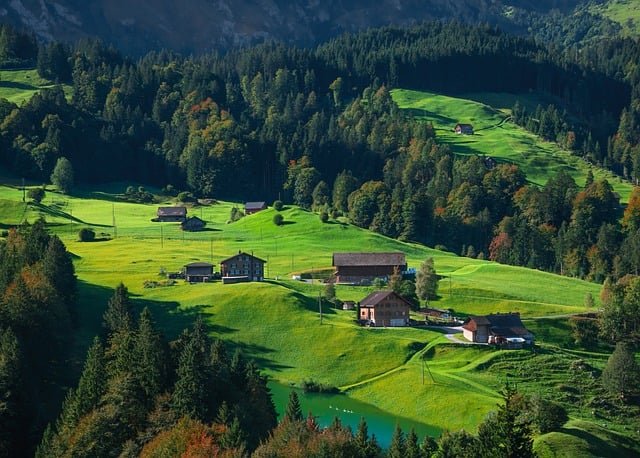
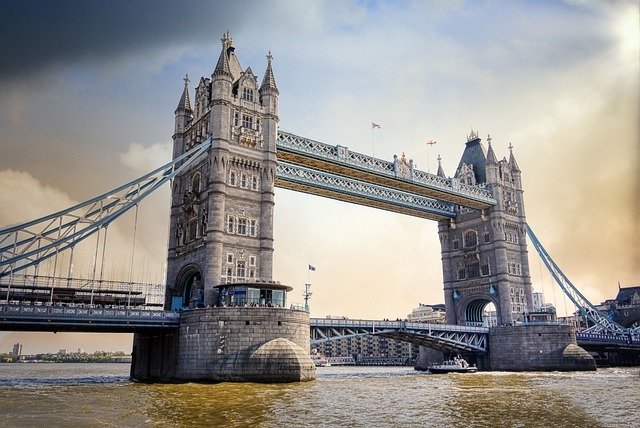

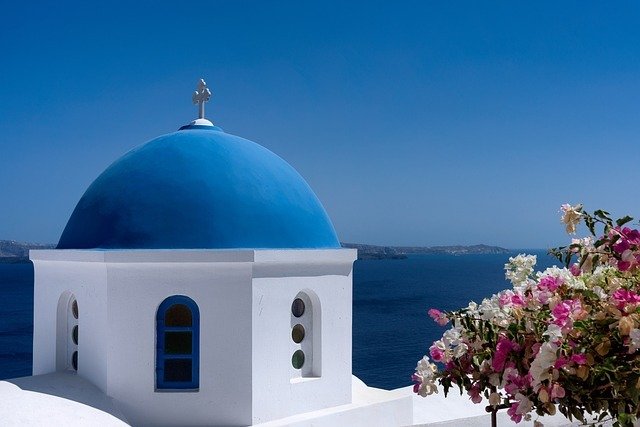

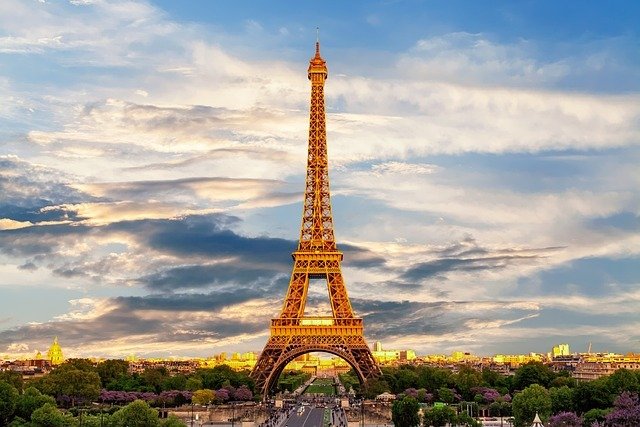
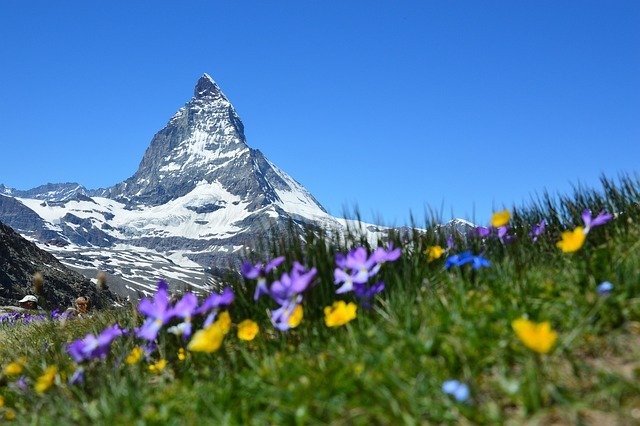


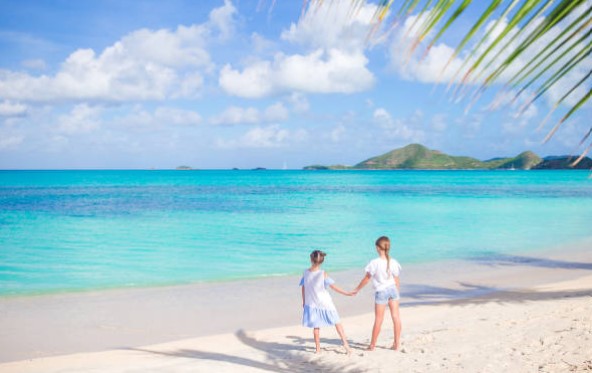
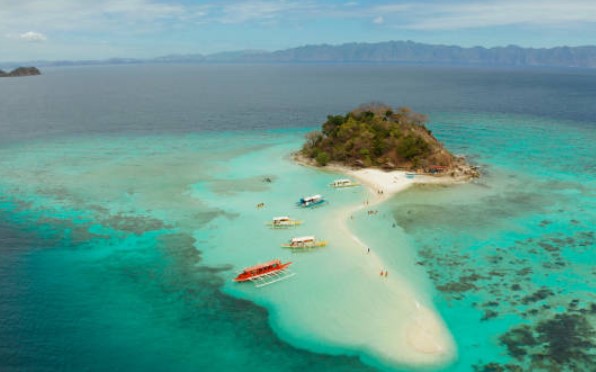
5 Responses
It’s really a cool and useful piece of information. I am glad that you simply shared this useful information with us. Please keep us up to date like this. Thanks for sharing.
I was recommended this blog by way of my cousin. I’m not positive whether or not this submit is written by him as no one else realize such distinctive about my problem. You are amazing! Thanks!
I will immediately seize your rss feed as I can’t to find your email subscription hyperlink or newsletter service. Do you’ve any? Kindly permit me know so that I may subscribe. Thanks.